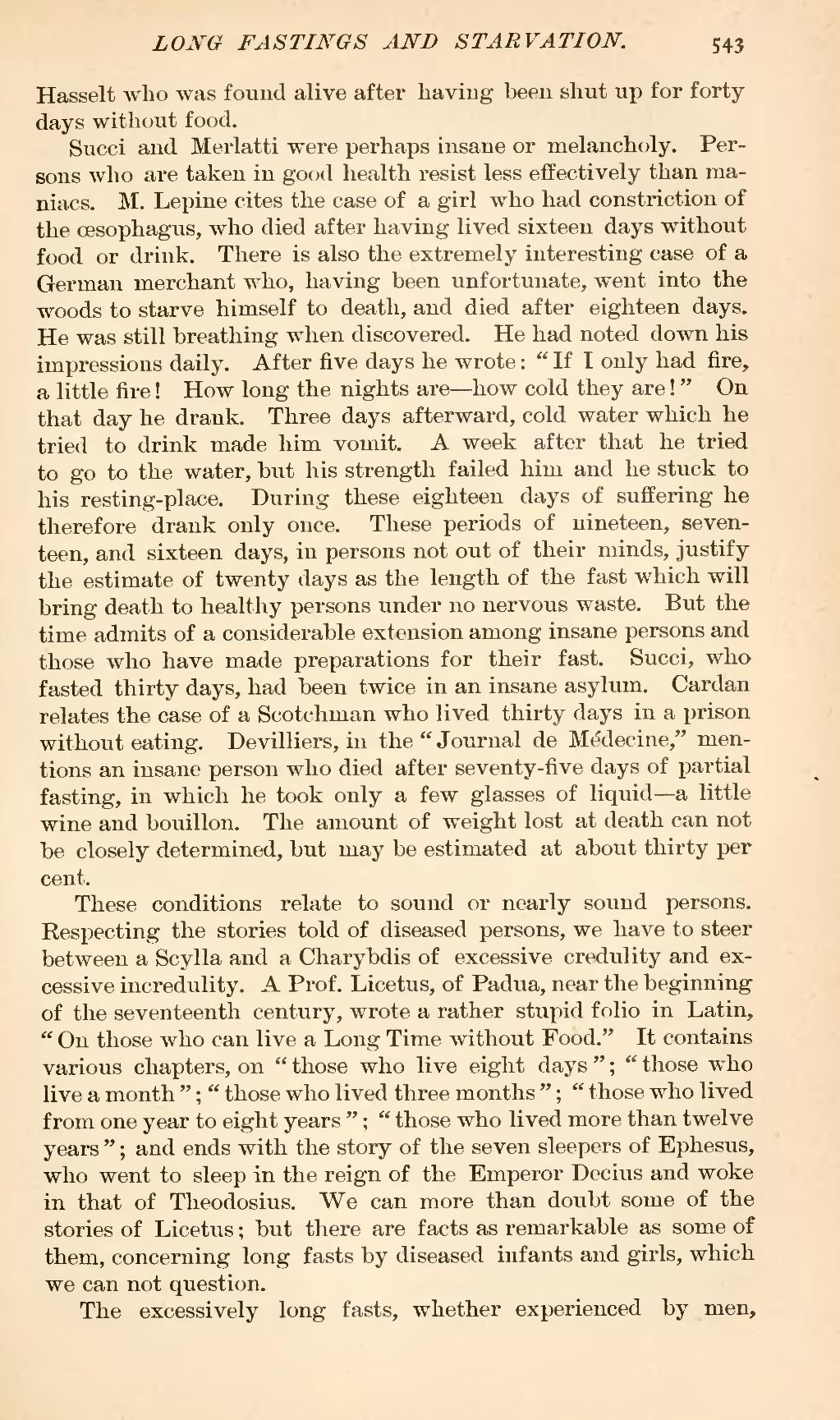Hasselt who was found alive after having been shut up for forty days without food.
Succi and Merlatti were perhaps insane or melancholy. Persons who are taken in good health resist less effectively than maniacs. M. Lepine cites the case of a girl who had constriction of the œsophagus, who died after having lived sixteen days without food or drink. There is also the extremely interesting case of a German merchant who, having been unfortunate, went into the woods to starve himself to death, and died after eighteen days. He was still breathing when discovered. He had noted down his impressions daily. After five days he wrote: "If I only had fire, a little fire! How long the nights are—how cold they are!" On that day he drank. Three days afterward, cold water which he tried to drink made him vomit. A week after that he tried to go to the water, but his strength failed him and he stuck to his resting-place. During these eighteen days of suffering he therefore drank only once. These periods of nineteen, seventeen, and sixteen days, in persons not out of their minds, justify the estimate of twenty days as the length of the fast which will bring death to healthy persons under no nervous waste. But the time admits of a considerable extension among insane persons and those who have made preparations for their fast. Succi, who fasted thirty days, had been twice in an insane asylum. Cardan relates the case of a Scotchman who lived thirty days in a prison without eating. Devilliers, in the "Journal de Médecine," mentions an insane person who died after seventy-five days of partial fasting, in which he took only a few glasses of liquid—a little wine and bouillon. The amount of weight lost at death can not be closely determined, but may be estimated at about thirty per cent.
These conditions relate to sound or nearly sound persons. Respecting the stories told of diseased persons, we have to steer between a Scylla and a Charybdis of excessive credulity and excessive incredulity. A Prof. Licetus, of Padua, near the beginning of the seventeenth century, wrote a rather stupid folio in Latin, "On those who can live a Long Time without Food." It contains various chapters, on "those who live eight days"; "those who live a month"; "those who lived three months"; "those who lived from one year to eight years"; "those who lived more than twelve years"; and ends with the story of the seven sleepers of Ephesus, who went to sleep in the reign of the Emperor Decius and woke in that of Theodosius. We can more than doubt some of the stories of Licetus; but there are facts as remarkable as some of them, concerning long fasts by diseased infants and girls, which we can not question.
The excessively long fasts, whether experienced by men,
